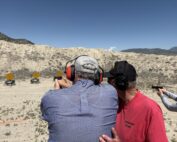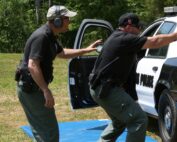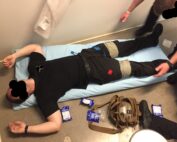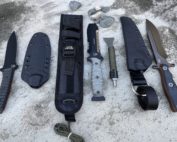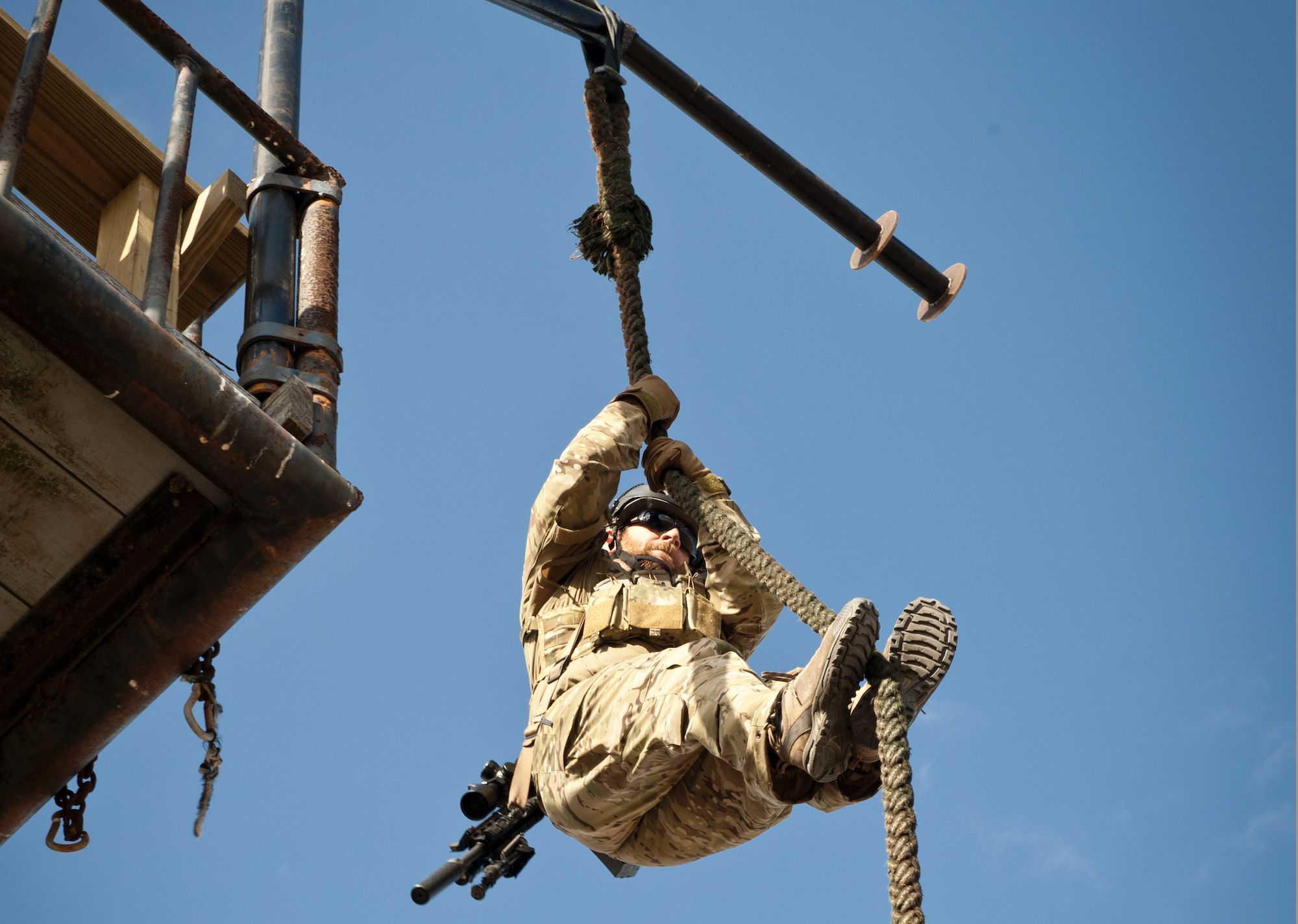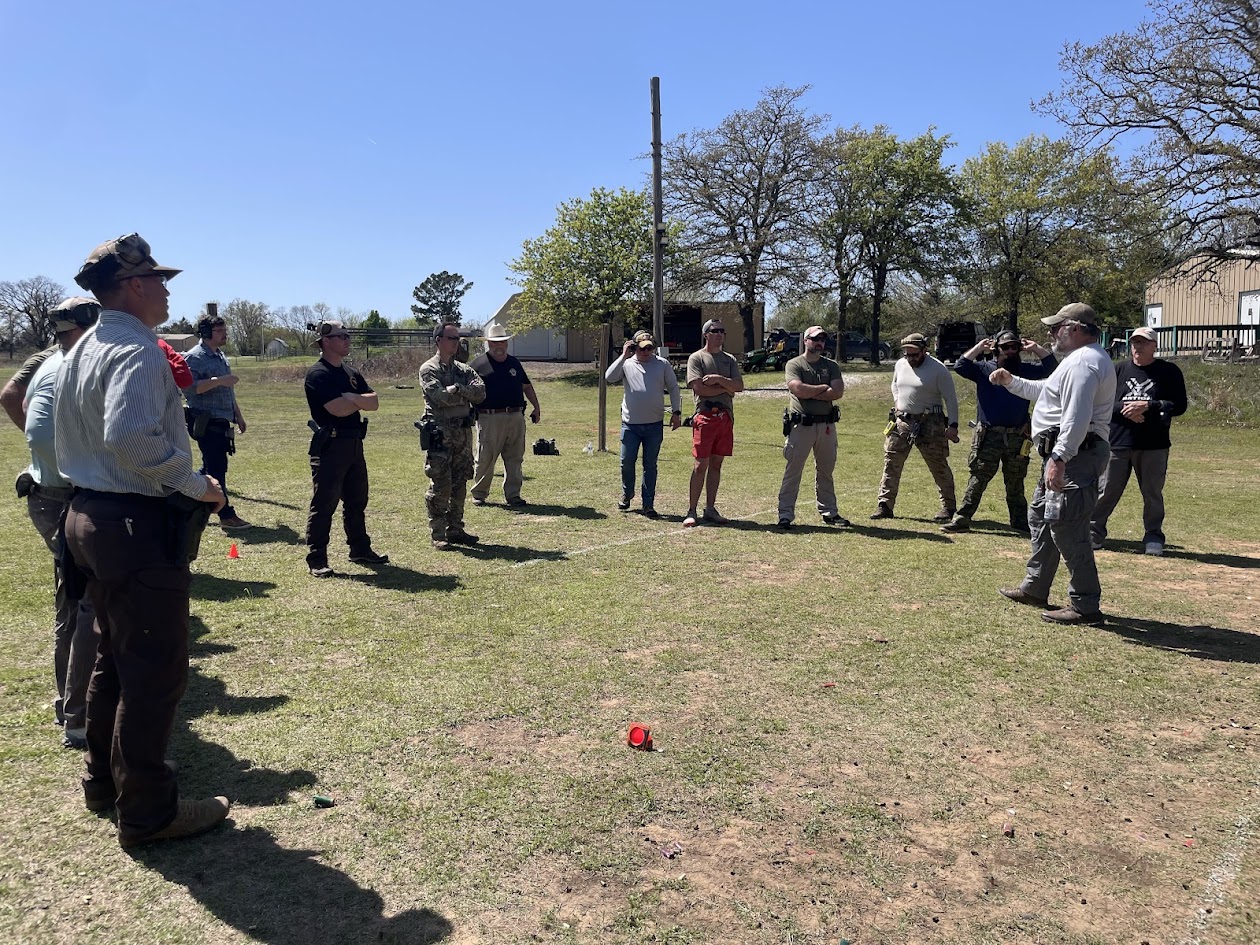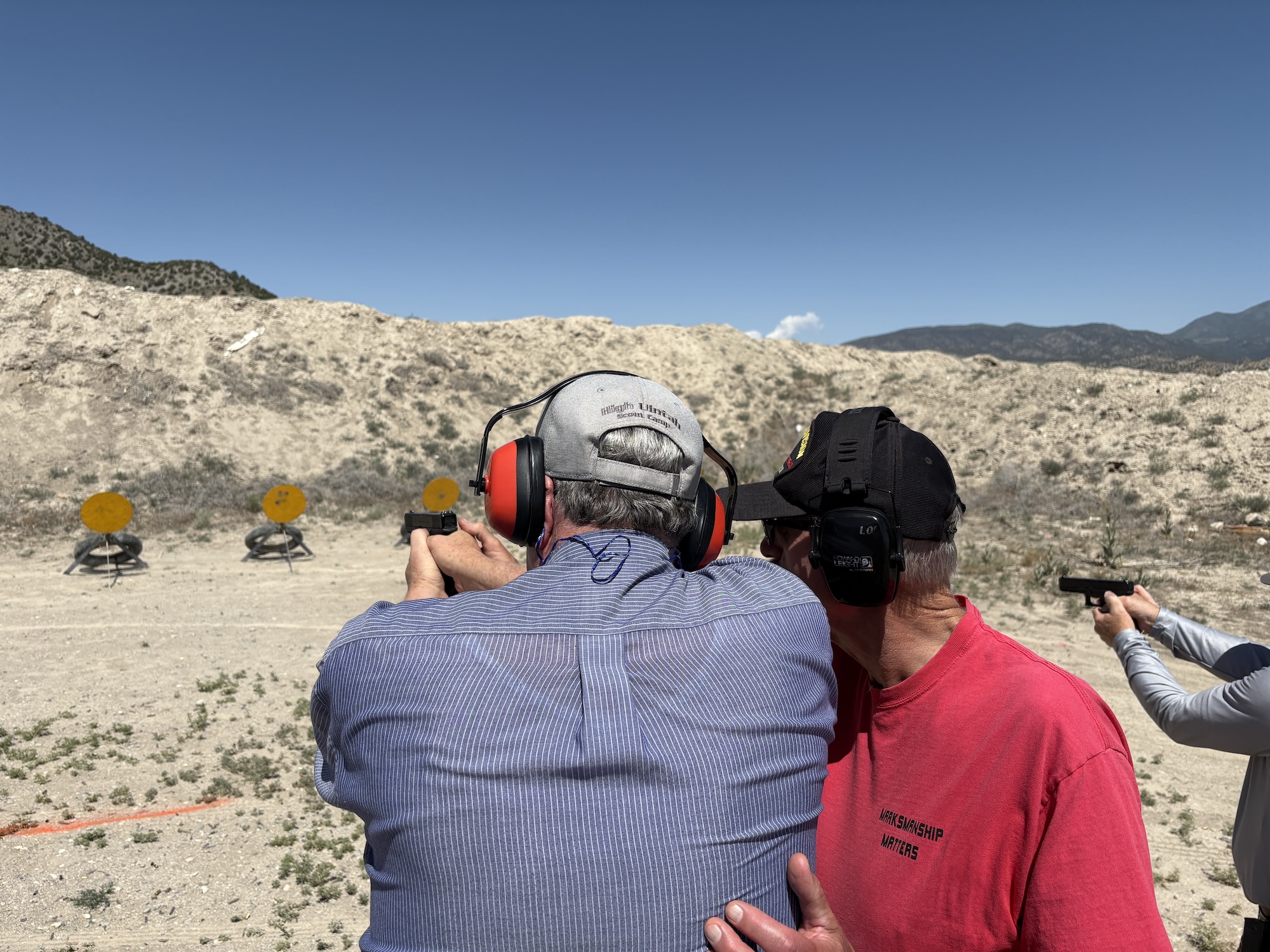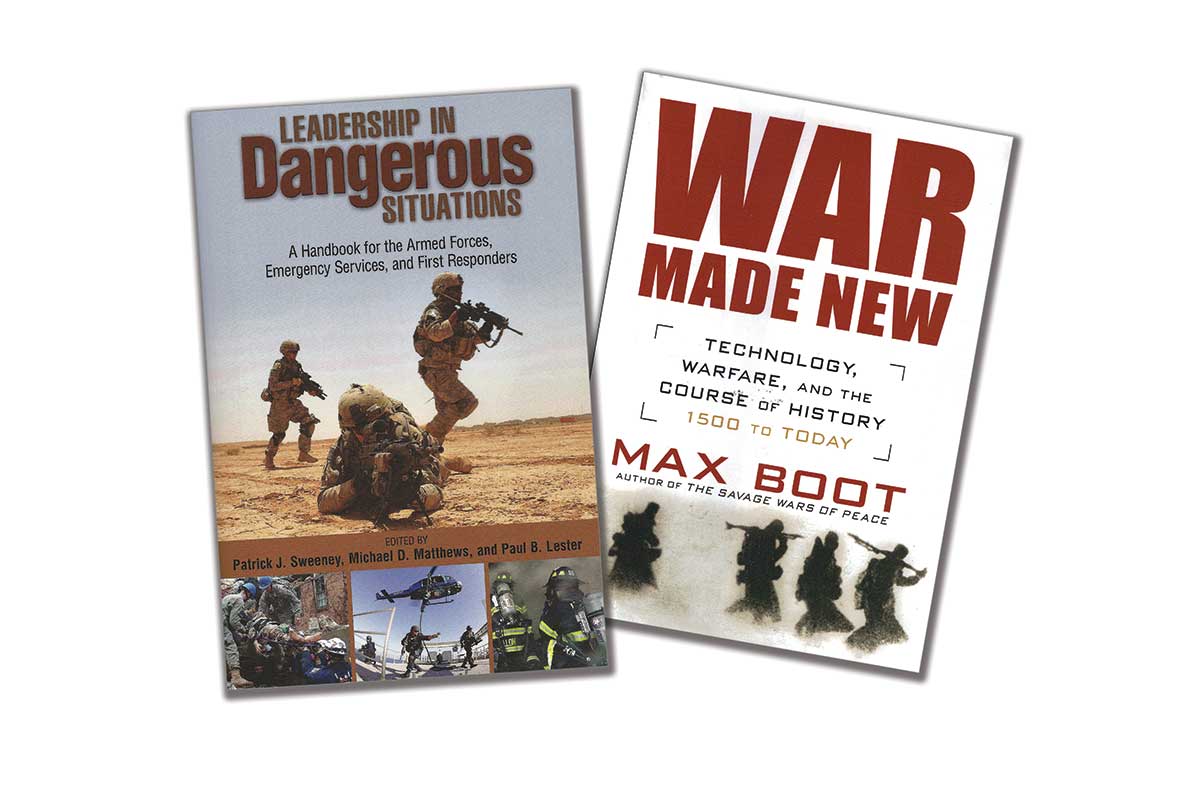
AC0613_PATH-2-800
When I was promoted to sergeant in 1974 I went from Investigations back to Patrol and took over a squad on the graveyard shift. The squad’s senior officer, I learned, was Gene Chouinard. He had been a San Diego cop for only 4 years less than I had been alive. I knew him by reputation: widely experienced and absolutely honest, a gentle gentleman who could also kick butts and administer “stick drill,” and a word kept cropping up that I’d never heard applied to a cop before — wisdom. He was regarded as not just smart, but also wise. I had never met him.
As the junior sergeant on graveyard I pulled the “late reports” duty, which meant my patrolmen had already taken the field when I came to work. As I hit the bricks I heard him get a “big family fight” call, so I rolled to cover him.
It was big all right, quickly swelling from a half-dozen to over 30 members of a huge, hot-blooded Portuguese fishing family, one where at the time, all working males wore long, nasty tuna knives 24/7, and had been known to use them for purposes other than gutting big tuna. Blows had been thrown with fists and pieces of two chairs — which had been busted over some of the combatants — and blood spattered the walls and carpet of a standing-room-only parlor. Hands were on knife butts, and battle lines were drawn. My first thought was, “We’re gonna need more cover, Code Two.”
But Gene flashed me a “Code Four” as I walked in, held a “ssshhh” finger to his lips, and then continued playing that loud, angry crowd like a maestro conducting the London Symphony Orchestra. Moving from knot to clot, he invoked concern for grandma’s shattered nerves, respect for the patriarch, so old he could hardly speak but sat with his eyes burning holes in his descendants; the family’s honor, and even “If more go to jail than must go to jail, who will work the boats next week?”
It was a masterful performance. The coolest thing he did was turn the aggressiveness and willingness to fight of several males away from resenting us into firm, determined control of the hotheads. We talked about it later.
“Thank Musashi,” he laughed, referring to Miyamoto Musashi, the great Japanese samurai swordsman and author of A Book of Five Rings. One tactic he used is called “holding down a pillow.” Don’t know it? Read the book.
BETWEEN THE PAGES
It’s true there’s only so much you can learn from books. But you can turn that around and say “there’s so much you can learn from books,” and it’s just as true. And sometimes you find the best stuff in the strangest places. Back in ‘74 there was no “verbal judo” (or “gerbil voodoo,” to some cops), no “crisis intervention styles,” nothing like that. But Gene took wisdom from the writings of a samurai almost 400 years dead, and you can too.
Xenophon of Athens (430-354 BC) was a well-educated rich kid who tagged along with a pal when some “rented muscle” — mercenary Greek hoplites — engaged in a failed invasion of Persia. The Greeks were betrayed and their leaders executed. Ten thou-sand leaderless hoplites were stuck deep in Mesopotamia, surrounded by hostile forces.
Xenophon was just along for the ride, but wound up drafted as a captain, then overall leader. He was demoted, re-promoted, fi red and re-hired, banished and then begged to come back with unlimited power as the hoplites fought their way to the sea and back to Greece. He became a skilled leader and a great “reader of people.” His book, Anabasis, is available in most libraries. It’s an epic of “leadership in dangerous situations,” which leads us to…
IN THE CRUCIBLE
Leadership in Dangerous Situations (Sweeney, Matthews and Lester; Naval Institute Press) is the first multi-disciplinary collection of essays specifically relating to leading people in life-threatening critical work. There’s a lot of science in it, but it’s “written for the practitioner, in practitioner’s language.” You are that practitioner.
Fifty-eight contributors write on every aspect of leading under pressure, from the physiological phenomena to team behaviors and even an in-depth take on what courage in danger really is, as opposed to panic, instinct, visceral reaction — and foolhardiness. The best part? Aside from being read-able, each section is an easily digested bite, and if any one subject doesn’t grab you, you can go on to another without losing the flow.
Over the past several years I’ve been amazed at the number of police sergeants who know nothing about the history of sergeancy, or even the origin of the chevrons on their sleeves. Max Boot’s book War Made New is a fascinating take on the pivotal changes in warfare from 1500 to the present, but as you read it you realize it’s really about sergeants and how this class of leaders, more than any other, have shaped the course of history. Did you know academies were created for training sergeants long before any similar formalized training was set up for higher-ranking officers, who were typically nobles? Why? Because smart people realized skilled sergeants were more important in creating successful units and winning skirmishes, battles and wars than any blue-blood patrician.
Don’t concentrate on picking up tactics or techniques, or on “learning lessons” while reading these books. Just read them because they’re interesting and different, and let the lessons come by osmosis. Yeah, just soak ‘em up.
Become wise.


 (No Ratings Yet)
(No Ratings Yet)



